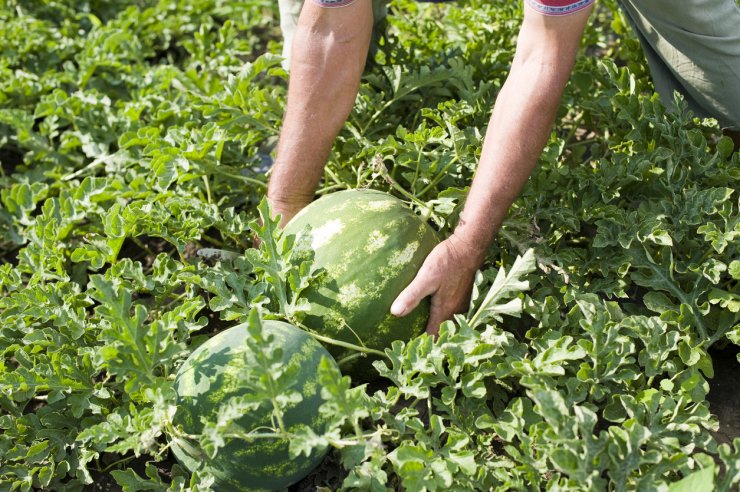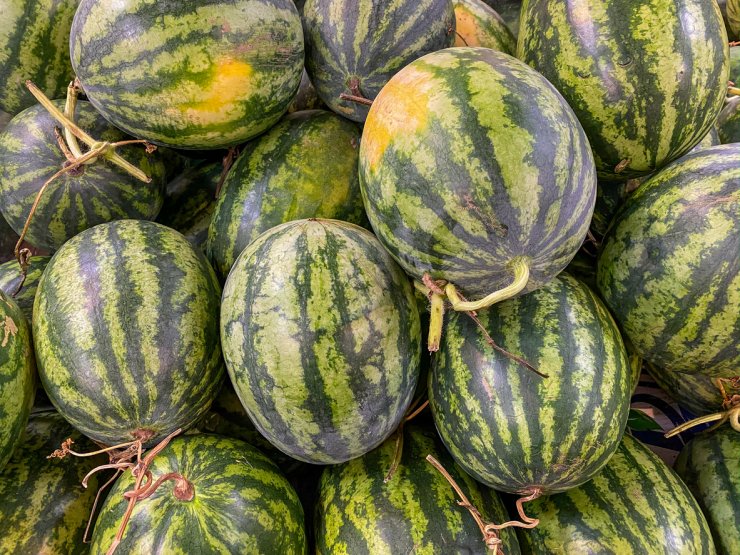
Harvesting watermelons
Congratulations, you’ve planted, nurtured, and brought your watermelon plants to fruit! The next question is, when should you harvest your watermelons?
The answer has numerous parts:
Calendar: Note when you planted your seeds or seedlings, and count out the days that the producer gives as time to harvest.
Size: The fruit is the size you expected it to be based on the variety.
Tendrils: The tendril closest to the fruit begins to wither, turn brown, and curl. If the tendril is green, the fruit is not ripe. If the tendril is dead, the fruit is ripe or overripe.
Rind: The rind loses it vibrant, shiny gloss and turns dull. There will be little contrast between stripes on the skin.

Yellow spot on ripe watermelons
Bottom: A white spot will develop where the melon touches the ground as it grows. When that spot turns yellow, the fruit is ripe.
Sound: Mark Twain noted that a ripe melon will make a “punk” sound when rapped—this is a low thud. Unripe melons make a sharp ping sound when rapped.
Brothers: Watermelons on the same plant typically ripen together over a two-week period, so when the first melon is ripe, the others will ripen shortly.
-
- Watermelon Storage Bonus Tip: Store whole watermelons at room temperature and they’ll last longer—up to two weeks. Put that watermelon in the refrigerator and it will start to decay after about a week! (To keep a watermelon from rolling off your counter, put it in a brownie pan or bowl.)
Cut watermelon should be wrapped in plastic, refrigerated, and used within three to five days.
When do you harvest your watermelons? Do you get a good crop every year? Please tell us your experiences with harvesting your watermelons.


 Previous
Previous

